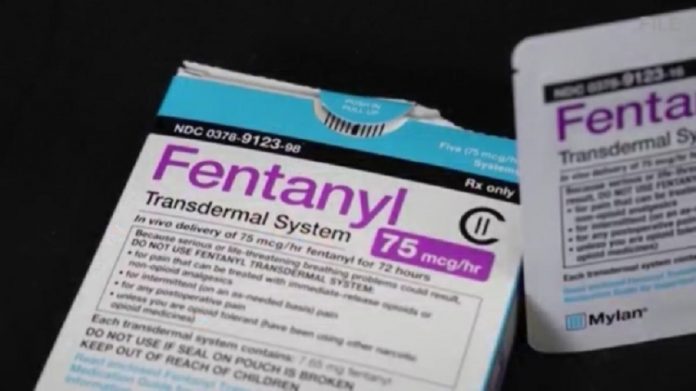JEFFERSON COUNTY, Ark. – A recent incident at the Dub Brassell Adult Detention Center has raised alarm about the dangers correctional officers face when handling incoming mail for detainees. On January 31, Lieutenant Keaira Hawkins, a supervisor at the facility, was exposed to fentanyl while sorting through detainee mail. Despite wearing gloves during the task, the officer experienced severe symptoms, including a headache and burning eyes, before eventually passing out.
Lieutenant Hawkins was reportedly feeling confused and unwell while working in the mailroom. “I was confused because I was wondering why my head was hurting,” she said. “My eyes got to burning so I walked out and shortly after that I passed out.” After being transported to the hospital, she was treated with naltrexone, which counteracts the effects of opioids like fentanyl, and recovered shortly after.
Major John Bean, who oversees the detention center, suspects that the mail Hawkins was sorting had been laced with fentanyl, a powerful opioid known to be highly toxic, even in minute amounts. “When she was given a dose of naltrexone, she recovered at that time and that’s how we believe it’s fentanyl,” Bean explained. The fentanyl exposure occurred despite Hawkins’ use of gloves while handling the mail.
Fentanyl can be absorbed through the skin, and according to Major Bean, it’s possible the drug was in the form of airborne particles or soaked into the paper itself. “It’s airborne, so what they will do at times is soak the paper with the drugs,” Bean said. “They will try to ingest it or smoke it.” This method of smuggling drugs is especially dangerous to correctional officers who are tasked with securing the facility and ensuring safety.
This is believed to be the second time in over a year that Lieutenant Hawkins has been exposed to fentanyl. The presence of other illegal substances, including marijuana, methamphetamine, and cocaine, is also a constant concern for facility officials.
When questioned about the mail that may have contained the fentanyl, Hawkins noted that employees are trained to look for irregularities. “It was a thicker mail on some copper paper that you can draw on,” she said. The staff at the detention center closely scrutinize all incoming mail to identify potential threats, as drugs are often hidden in creative ways.
Despite the recent scare, Hawkins returned to work on Monday, emphasizing the importance of her role. “The importance of our job is the security of the jail, making sure that everything gets done properly,” she said. Hawkins and her colleagues are not only charged with overseeing the detainees but also with keeping illegal substances out of the facility, a responsibility that has proven to be increasingly difficult.
Major Bean emphasized that the safety of the staff is just as critical as maintaining the security of the facility. “It’s a constant awareness not only with what’s trying to come in, but with the people working there,” Bean said. The department is actively investigating the recent incident and plans to search for DNA evidence to further understand how the fentanyl-laced mail was introduced into the facility.
The dangers posed by drugs like fentanyl to correctional staff have become a pressing concern. In addition to their standard duties, officers must remain vigilant against the creative methods used to smuggle contraband, and the growing risk of exposure to life-threatening substances. As investigations continue, Jefferson County officials are exploring ways to enhance safety protocols and prevent future incidents.

